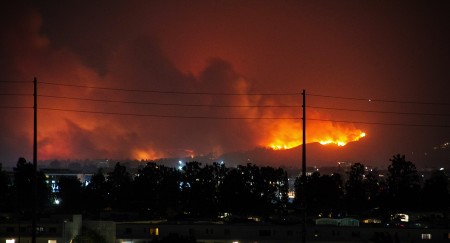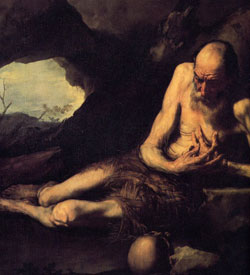 Dear readers, Catholic Online was de-platformed by Shopify for our pro-life beliefs. They shut down our Catholic Online, Catholic Online School, Prayer Candles, and Catholic Online Learning Resources—essential faith tools serving over 1.4 million students and millions of families worldwide. Our founders, now in their 70's, just gave their entire life savings to protect this mission. But fewer than 2% of readers donate. If everyone gave just $5, the cost of a coffee, we could rebuild stronger and keep Catholic education free for all. Stand with us in faith. Thank you. Help Now >
Dear readers, Catholic Online was de-platformed by Shopify for our pro-life beliefs. They shut down our Catholic Online, Catholic Online School, Prayer Candles, and Catholic Online Learning Resources—essential faith tools serving over 1.4 million students and millions of families worldwide. Our founders, now in their 70's, just gave their entire life savings to protect this mission. But fewer than 2% of readers donate. If everyone gave just $5, the cost of a coffee, we could rebuild stronger and keep Catholic education free for all. Stand with us in faith. Thank you. Help Now >
'God's name is mercy': Pope Francis speaks to priests
FREE Catholic Classes
Pope Francis spoke candidly to thousands of priests this week during a special retreat for the Year of Mercy. The upshot of what he told them? We as priests are sinners, and we need God's mercy as much as everyone else.
Highlights
Catholic Online (https://www.catholic.org)
6/3/2016 (8 years ago)
Published in Living Faith
Keywords: Pope Francis, priests, Year of Mercy, sinners, forgiveness
Vatican City, Italy (CNA/EWTN News) - The Pope encouraged them to look to the Prodigal Son as a way to overcome the scandal of sin and celebrate God's mercy and forgiveness in their lives and their ministry.
"If we start by thanking the Lord for having wondrously created us and for even more wondrously redeemed us, surely this will lead us to a sense of sorrow for our sins. If we start by feeling compassion for the poor and the outcast, surely we will come to realize that we ourselves stand in need of mercy."
He told the priests "we are at one and the same time sinners pardoned and sinners restored to dignity."
The Jubilee of Priests began on Wednesday June 1 and will end on Saturday, the Solemnity of the Sacred Heart of Jesus. The three-day period offers the priests chances for prayer and reflection, Eucharistic Adoration, and confession. They may also make pilgrimages to designated jubille churches and pass through the Holy Door of St. Peter's Basilica. The jubille will conclude with a June 3 Mass with Pope Francis in St. Peter's Square.
Pope Francis delivered his Wednesday remarks at the Basilica of St. John Lateran.
"God's name is mercy," he said in his first meditation. "If we reflect on this natural feeling of mercy we begin to see how God Himself can be understood in terms of this defining attribute by which Jesus wished to reveal Him to us."
He said that mercy leads to immediate action. It is not productive to "intellectualize things" during prayer. Rather, prayer must focus immediately on those sins for which we most need God's mercy, are most ashamed, and most desire to make reparation.
He also encouraged the priests to "speak of what most moves us, of all those faces that make us want to do something to satisfy their hunger and thirst for God, for justice, for tenderness."
"Mercy engages our whole being - our feelings and our spirit - and all other beings as well," he said.
The Parable of the Prodigal Son shows the power of homesickness and nostalgia, which make us "think back to our first experience of goodness - the homeland from which we went forth" and awakens the hope of returning there.
The prodigal son's nostalgia helped him realize he was miserable. He returned to his father with "embarrassed dignity," but his father restored this dignity. According to the Pope, mercy maintains the balance between acknowledging ourselves as sinners and recognizing our dignity as children loved by God the Father. We will be led to be merciful to others if we can see ourselves in the place of the prodigal son.
"If we can serenely keep our heart balanced between those two extremes - dignity and embarrassment - without letting go of either of them, perhaps we can feel how the heart of our Father beats with love for us," the Pope told the priests.
The prodigal son's father celebrated as a way to show that everything could be restored to his son at once. Mercy makes us pass "from estrangement to celebration" and can only be understood through hope.
"Mercy is the genuine expression of life that counters death, the bitter fruit of sin," the Pope said. Mercy is not naďve or blind to evil, but it sees "how short life is and all the good still to be done."
"That is why it is so important to forgive completely, so that others can look to the future without wasting time on self-recrimination and self-pity over their past mistakes," the pontiff continued. "Mercy is always tinged with hope."
The Pope described the tension in the person of Simon Peter, the apostle and first Pope. He was "an ordinary man with all his faults and inconsistencies" as well as the bearer of the keys of the Kingdom of Heaven.
"That is how we have to see ourselves: poised between our utter shame and our sublime dignity. Dirty, impure, mean and selfish, yet at the same time, with feet washed, called and chosen to distribute the Lord's multiplied loaves, blessed by our people, loved and cared for," he told the priests. "Only mercy makes this situation bearable. Without it, either we believe in our own righteousness like the Pharisees, or we shrink back like those who feel unworthy. In either case, our hearts grow hardened."
For Pope Francis, the only way to be excessive in responding to God's excessive mercy is "to be completely open to receiving it and to sharing it with others." He cited the many examples of this excessive mercy in the Gospels.
The Pope's second reflection, given Thursday at the Basilica of St. Mary Major, compared sin to "the vessel of mercy" that is like a leaky bucket from which grace quickly drains. He invoked the Prophet Jeremiah's imagery of a people who have forsaken God, the fountain of living water, and dug for themselves "cracked cisterns that can hold no water."
"God keeps forgiving, even though he sees how hard it is for his grace to take root in the parched and rocky soil of our hearts. He never stops sowing his mercy and his forgiveness," he added.
The Pope said that the heart redeemed in Christ is "no longer battered and leaky."
"It feels the balm of grace poured out upon its wounds and its sinfulness; it feels mercy assuaging its guilt, watering its aridity with love and rekindling its hope," he said. When this heart forgives other sinners and treats them with compassion, this mercy "takes root in good soil, where water does not drain off but sinks in and gives life."
The best practitioners of mercy are those who know themselves to be forgiven. He used the example of addiction counselors who have themselves overcome addiction and can best understand, help and challenge others.
"So too, the best confessors are usually themselves good penitents. Almost all the great saints were great sinners or, like Saint Therese, knew that it was by sheer grace that they were not," he said.
The wounds of Jesus Christ on the Risen Lord "remind us that the traces of our sins, forgiven by God, never completely heal or disappear; they remain as scars."
"God's mercy is in those scars. In the scars of the risen Christ, the marks of the wounds in his hands and feet but also in his pierced heart, we find the true meaning of sin and grace."
While Jesus' heart was pure love and wounded willingly, the heart of fallen humanity is "pure wound" that was healed "because it allowed itself to be loved."
The Pope encouraged the priests to look to the saints who "let their hearts be re-created by mercy."
"Paul received mercy in the harsh and inflexible vessel of his judgement, shaped by the Law. His harsh judgement made him a persecutor," he commented. Mercy so changed him that he sought those who were far off, from the pagan world, and, at the same time showed great understanding and mercy to those who were as he had been. "
He also spoke of other saints.
"Peter was healed of the deepest wound of all, that of denying his friend," he said. John the Apostle was "healed in his pride for wanting to requite evil with fire."
The Pope said that the Virgin Mary is "the simple yet perfect vessel that both receives and bestows mercy."
"Her free 'yes' to grace is the very opposite of the sin that led to the downfall of the prodigal son," he said. "Her mercy is very much her own, very much our own and very much that of the Church."
The Pope spoke of special ways in which the Virgin Mary looks upon priests. Her gaze "makes us feel her maternal embrace" and her eyes "open up a space that is inviting, not at all like a tribunal or an office."
"If at times people realize that their own gaze has become hardened, that they tend to look at people with annoyance or coldness, they can turn back to her in heartfelt humility," he said. "She can remove the myopia that fails to see the needs of others."
She can also cure the far-sightedness that cannot see the details "where the truly important things are played out in the life of the Church and of the family."
She helps find "a way to bring good out of all the things that her people lay at her feet." Her gaze is one of "complete attention" and she is concerned only with the person in front of her. Her gaze is "all-embracing" and brings everything together: our past, present and future.
"It is not fragmented or partial: mercy can see things as a whole and grasp what is most necessary," he said. At the wedding at Cana, Mary foresaw with empathy what the lack of wine would mean and asked Jesus to solve the problem without anyone noticing.
"We can see our entire priestly life as somehow 'foreseen' by Mary's mercy; she sees beforehand the things we lack and provides for them," the Pope said. He said any "good wine" in priests' lives is due not to their own merits but to her anticipated mercy.
Pope Francis concluded his Thursday remarks with a prayer: "Remember, Lord, your covenant of mercy with your sons, the priests of your people. With Mary, may we be the sign and sacrament of your mercy."
---
'Help Give every Student and Teacher FREE resources for a world-class Moral Catholic Education'
Copyright 2021 - Distributed by Catholic Online
Join the Movement
When you sign up below, you don't just join an email list - you're joining an entire movement for Free world class Catholic education.

-

-
Mysteries of the Rosary
-
St. Faustina Kowalska
-
Litany of the Blessed Virgin Mary
-
Saint of the Day for Wednesday, Oct 4th, 2023
-
Popular Saints
-
St. Francis of Assisi
-
Bible
-
Female / Women Saints
-
7 Morning Prayers you need to get your day started with God
-
Litany of the Blessed Virgin Mary
Vatican City Leads the Way in Ethical Artificial Intelligence Regulation
-

Rising from the Ashes: Southern California's Wildfire Tragedy Sparks Resilience and Hope in the ...
-

Catholic Medical Group Challenges Biden Administration Over Emergency Room Abortion Mandate
-
FDA Proposes New Front-Facing Nutrition Labels to Promote Healthier Choices
-
Introducing 'Journey with the Messiah' - A Revolutionary Way to Experience the Bible
Daily Catholic
 Daily Readings for Wednesday, January 15, 2025
Daily Readings for Wednesday, January 15, 2025 St. Paul the Hermit: Saint of the Day for Wednesday, January 15, 2025
St. Paul the Hermit: Saint of the Day for Wednesday, January 15, 2025 Prayer for a Blessing on the New Year: Prayer of the Day for Tuesday, December 31, 2024
Prayer for a Blessing on the New Year: Prayer of the Day for Tuesday, December 31, 2024- Daily Readings for Tuesday, January 14, 2025
- St. Felix of Nola: Saint of the Day for Tuesday, January 14, 2025
- St. Theresa of the Child Jesus: Prayer of the Day for Monday, December 30, 2024
![]()
Copyright 2024 Catholic Online. All materials contained on this site, whether written, audible or visual are the exclusive property of Catholic Online and are protected under U.S. and International copyright laws, © Copyright 2024 Catholic Online. Any unauthorized use, without prior written consent of Catholic Online is strictly forbidden and prohibited.
Catholic Online is a Project of Your Catholic Voice Foundation, a Not-for-Profit Corporation. Your Catholic Voice Foundation has been granted a recognition of tax exemption under Section 501(c)(3) of the Internal Revenue Code. Federal Tax Identification Number: 81-0596847. Your gift is tax-deductible as allowed by law.









 Daily Readings for Wednesday, January 15, 2025
Daily Readings for Wednesday, January 15, 2025 St. Paul the Hermit: Saint of the Day for Wednesday, January 15, 2025
St. Paul the Hermit: Saint of the Day for Wednesday, January 15, 2025 Prayer for a Blessing on the New Year: Prayer of the Day for Tuesday, December 31, 2024
Prayer for a Blessing on the New Year: Prayer of the Day for Tuesday, December 31, 2024

